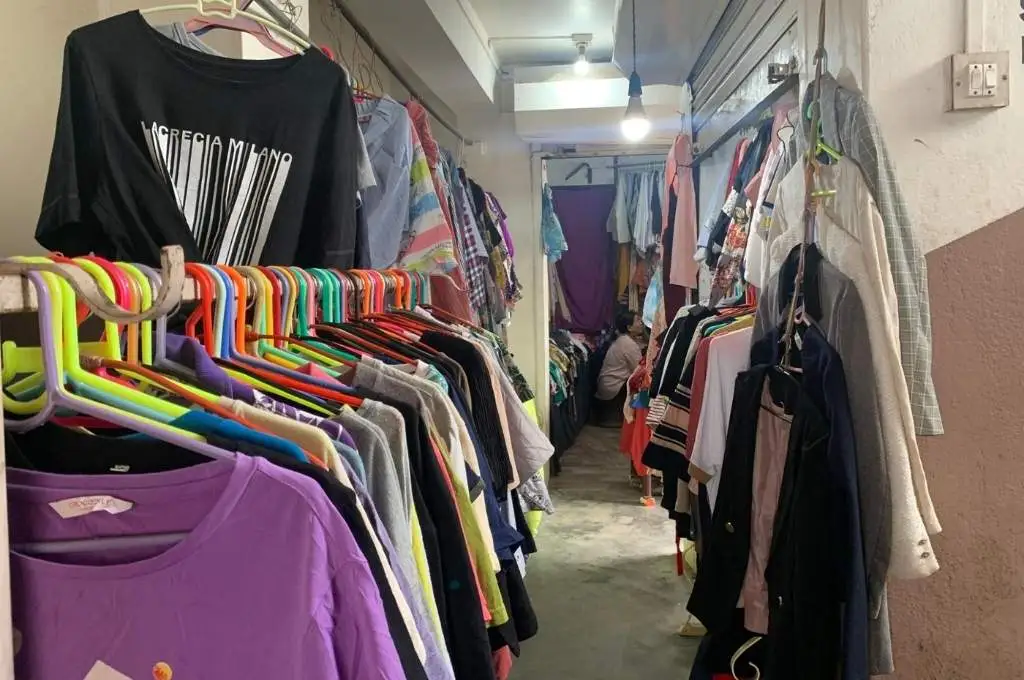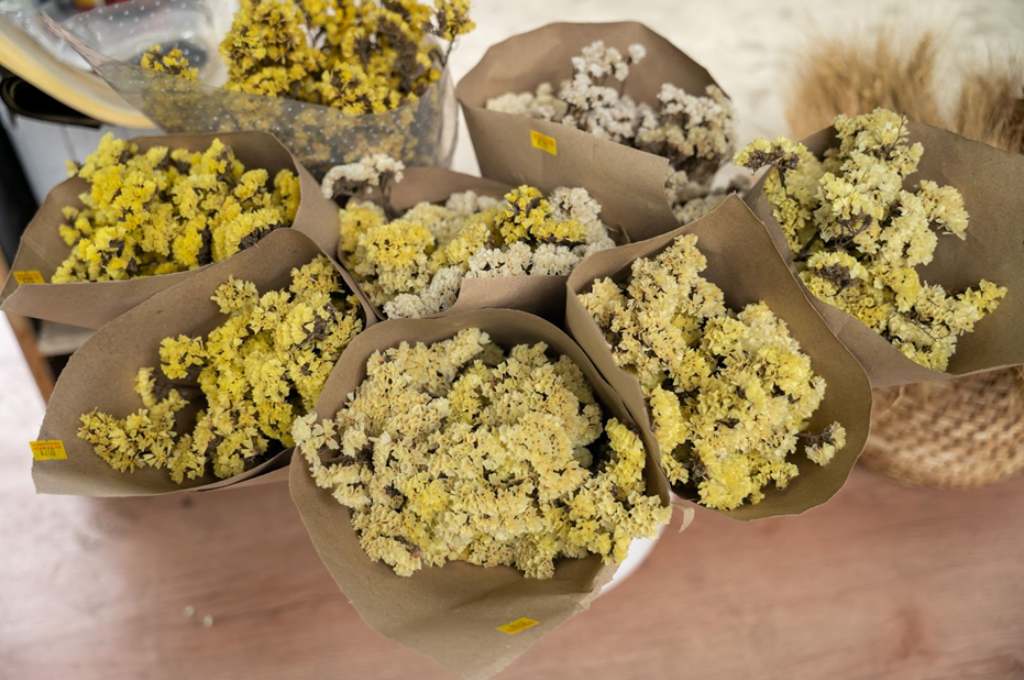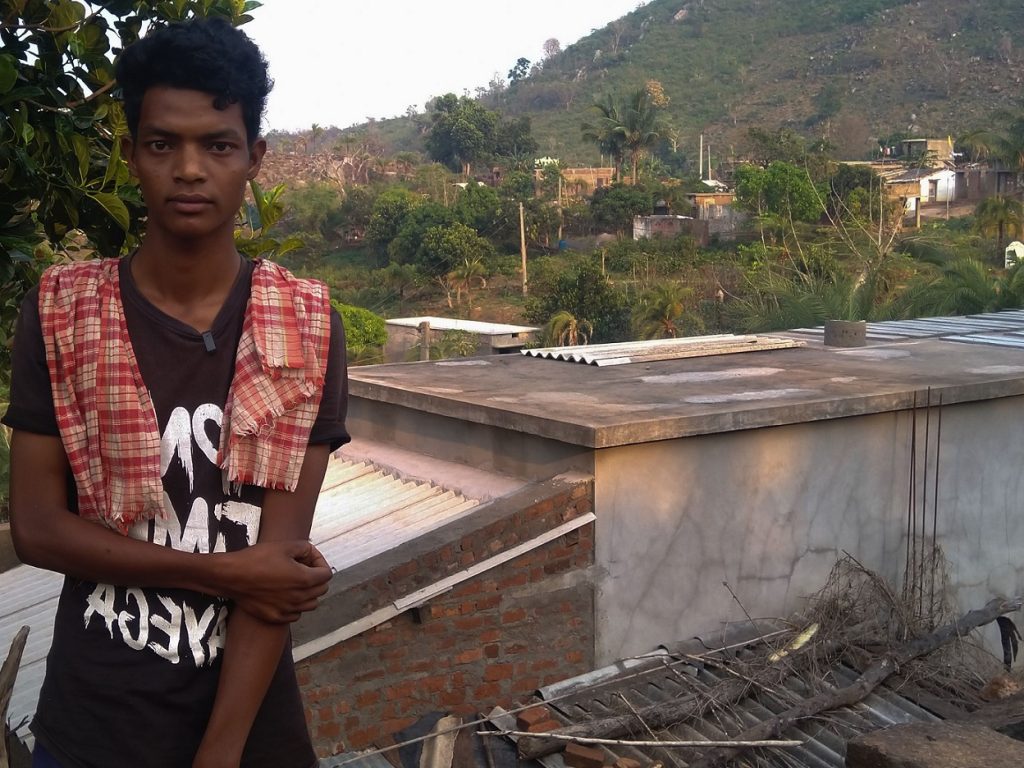
Philip Sabar is a 20-year-old from Tala Tapanga, a village in Rayagada block, Gajapati district. Earlier this year, in February, Philip left for Chennai to find work, as there was none in his village. He managed to find a job in construction, which paid him INR 4,000 a month. A recent migrant, he had high hopes of earning money to send back to his family. However, due to the lockdown, he returned to his village on March 15th, along with seven others. They received no support to come back, nor did they have any money. Once the lockdown ends, Philip may not go back. The fear of being left alone to fend for himself in a distant land has scarred him.
Photograph and text by Varun Namineni.
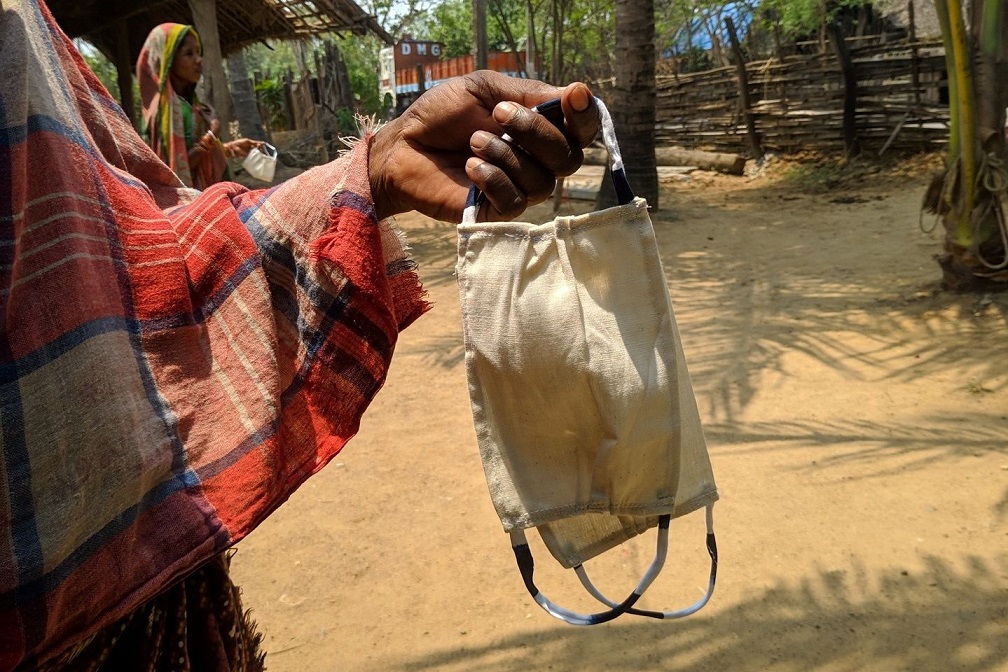
The Jagannath Prasad block in Ganjam district is severely affected by the pandemic and lockdown. A survey by Gram Vikas showed that more than 100 men from 22 villages had migrated for work, mostly to Tamil Nadu and Karnataka. Families are worried for their young sons and their futures. Questions such as “When will all this end? What will happen after this?” occupy their minds. As one of the blocks with good cellular connectivity, families in Jagannath Prasad are able to stay in touch with their children. However, with the lockdown extension, they are unsure where the money for medicines or agri-inputs for the upcoming farming season will come from.
Photograph and text by Jaison Thomas.
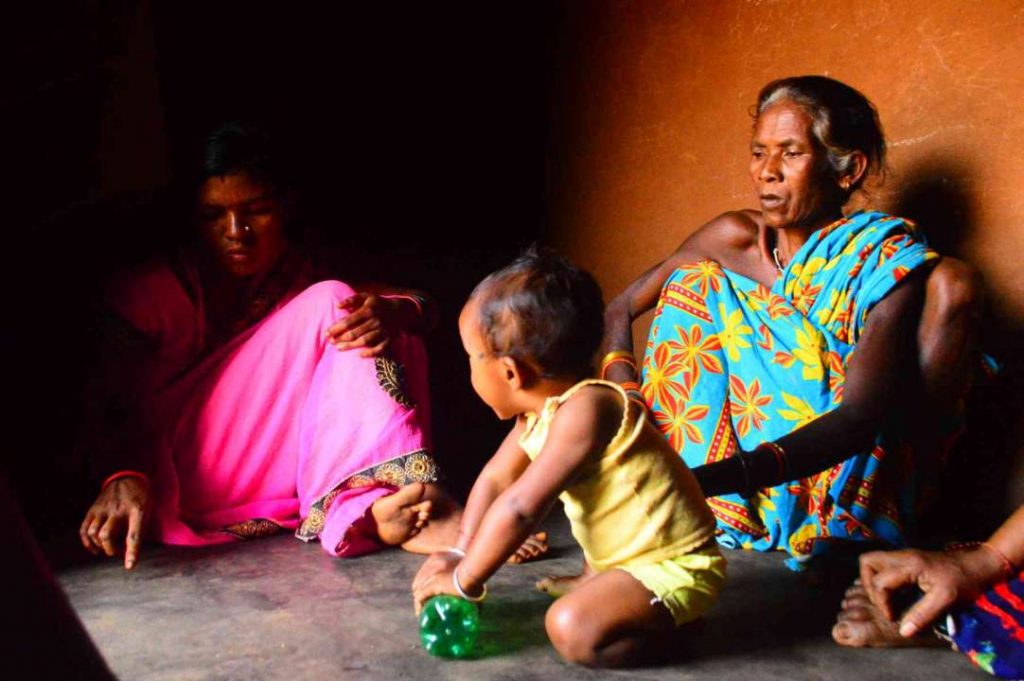
It’s been more than seven months since Mohan left his young family in Dholpas, a village in Thuamul Rampur block, Kalahandi district, for Thrissur district, Kerala. His son Prabhas was born just when he left, having found work in a cement bricks company in Kerala. Mohan had debts to repay, and his earnings in Kerala also helped meet his expenses and save money to send back home. Since the lockdown, he has had no work, and cannot fund his trip back home to see his child. His mother, Kunji Majhi and wife, Bijitra Majhi, hope that the government helps Mohan to return as soon as the lockdown is lifted.
Photograph and text by Aravind AR.
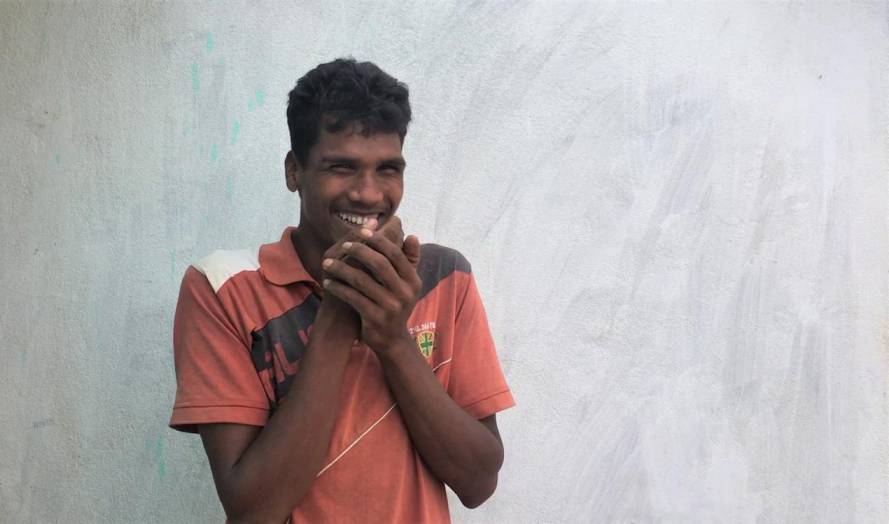
In early March, Sulaman Sabar migrated from Odisha to Chennai, Tamil Nadu for work. He was one of 11 people from his hamlet—Upar Tapanga, in Rayagada district—to move. He worked for a week or two but had to come back home due to the lockdown. All 11 people went together and had a contract, which is still ongoing. But Sulaman wants to stay back now with his father and try to find work in the village itself. He didn’t explain why he does not want to return to Chennai, but he has made up his mind on staying in the village.
Photograph and text by Naina Lahoti.
Related article: A day in the life of: A community health worker
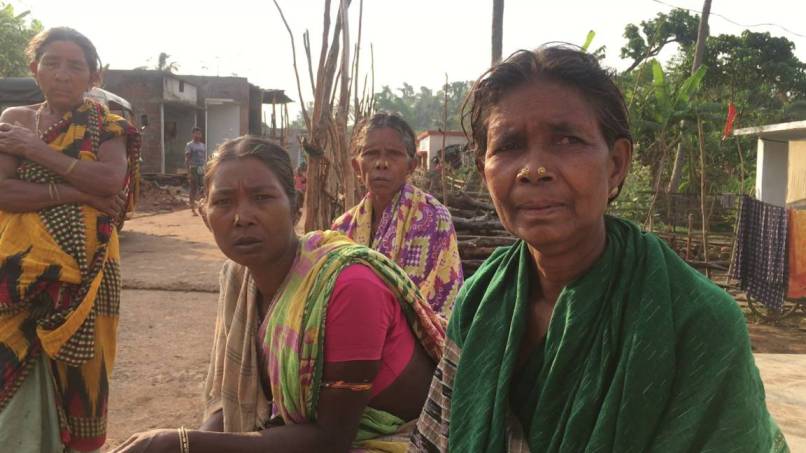
Kanchana Sabar is old and lives alone in her village, T Landusahi in Gajapati district. She received four months’ worth of old age pension in advance from the government. Her major expense is on healthcare. Although she does not know for how long the INR 2,000 will last, she is relieved that with the money from the panchayat, she can continue to care for her health like she did before the lockdown.
Photograph and text by Naina Lahoti.
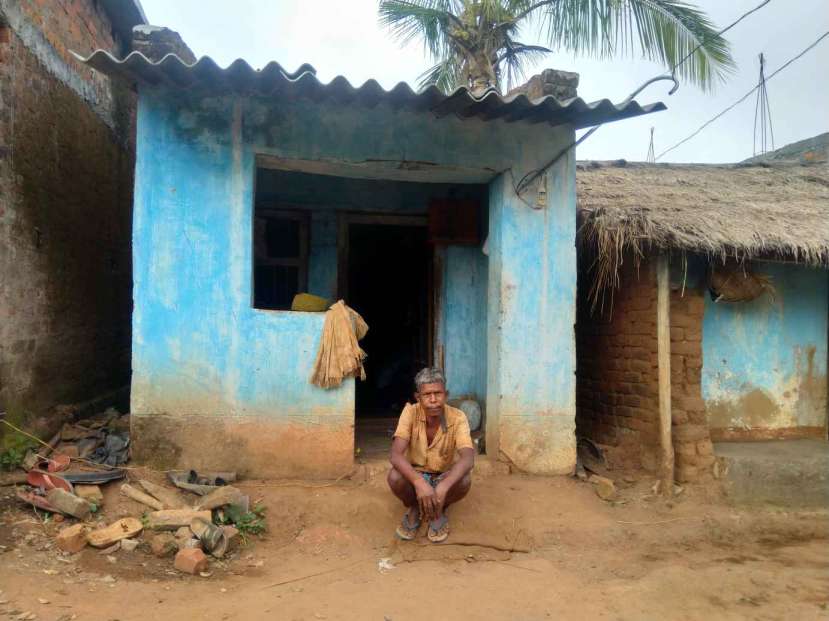
Ramaswami’s son, Sashidhar had gone to Raichur, Karnataka, for construction work. Like many others, he could not come back. He used to earn INR 15,000 per month, but now there is no work and no income either. He has been left to fend for himself in Raichur, without any support from the company or the contractors he works for. Sashidhar wants to stay back in Raichur and work for another year, but Ramaswami wants his son to come back home as he is worried about him.
Photograph and text by Varun Namineni.
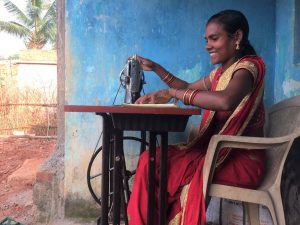
Babita Bhuyan, a resident of Landusahi village, Gajapati district, is the president of the local self-help group, Mukteswari. Until the lockdown came into effect, her collective made ragi laddus for Adivasi children attending school in Koinpur in Gajapati district. People in her village have been well-informed about the pandemic through awareness drives by local organisations. However, there is a shortage of masks as local markets are now shut. Recognising this, with a little help, Babita has been able to make masks which are now being distributed across local shops in her village. She feels content that she could help people in her village, but she hopes that the situation normalises soon, so that she can go back to preparing laddus for school children.
Photograph and text by Yashika Malik.
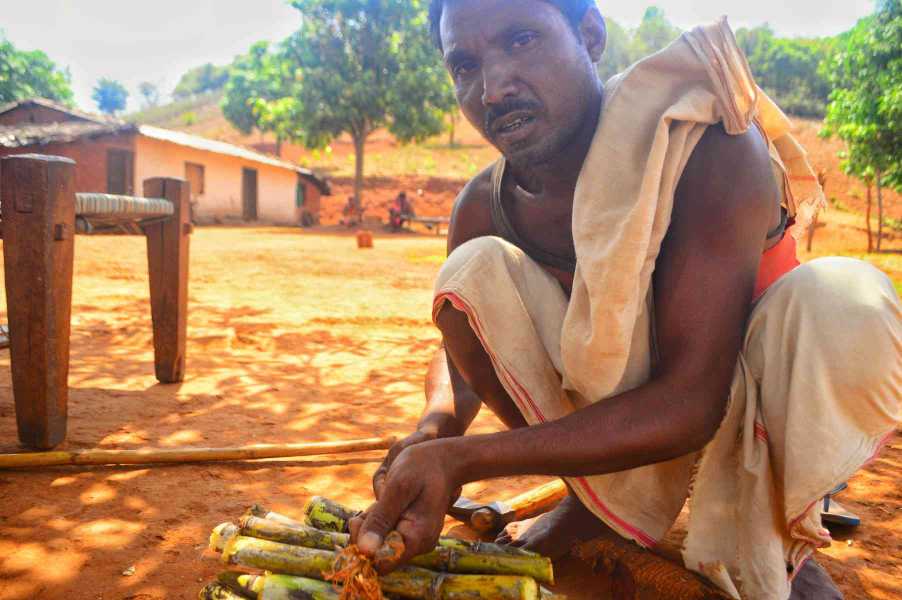
A few years ago, Ram Singh Majhi, a farmer from Sindhipadar village, Thuamal Rampur block, Kalahandi district, shifted from traditional slash and burn farming to environmentally-friendly farming techniques. He was recognised in the village for successfully growing paddy, mango, banana, and sugarcane. But for the last two months, he hasn’t been able to harvest or sell his produce, due to the lockdown. Markets are closed, and even his attempts to reach middlemen have not helped—they cannot reach his remote village. Ram Singh was expected to earn a profit of INR 10,000-14,000 from the sale of sugarcane alone, but now his produce has begun to get damaged with the passing of time and the harsh summer setting in. His family is solely dependent on farming, and these profits would have seen them through the summer, and bought investments for the next farming season.
Photograph and text by Rufus Sunny.
—
Know more
- Learn more about the impact of COVID-19 and the lockdown on migrant labourers from Kalahandi district, Odisha.
- Go through this photo essay, ‘My lockdown life’, where migrant workers photograph and document their daily lives in lockdown.
Do more
- Write to c19@gramvikas.org to volunteer to support migrant workers.


